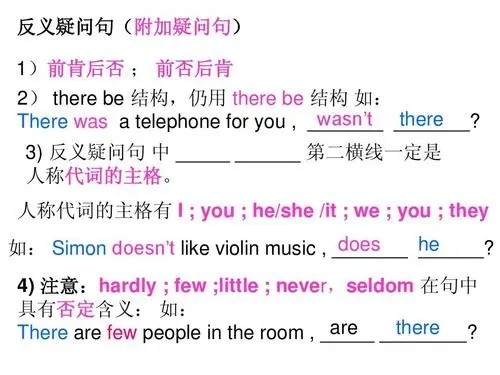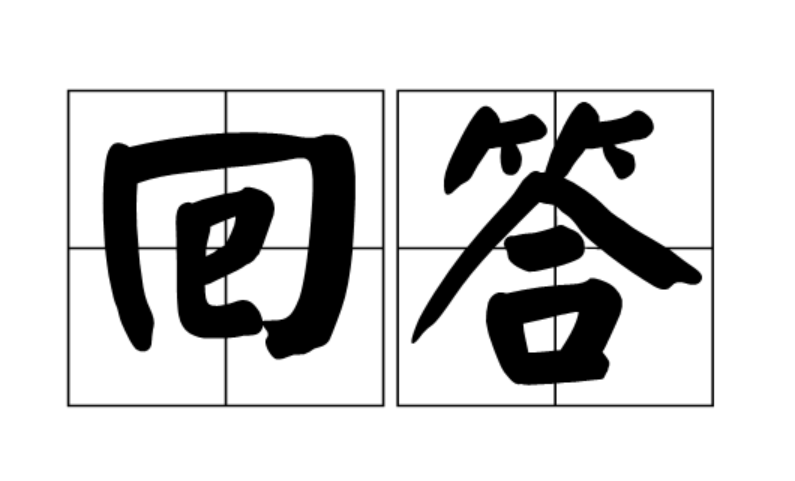反意疑问句辩塌的回答用yes或no,但是当陈述部分是否定式,疑问部分是肯定式时,答语中使用yes或no则应根据事实来决定。
Something is wrong with your watch, isn’t it?当陈述部分含有否定意思的词是unhappy,dislike,unfriendly,等含有否定词缀的派生词。
也就是有un,dis-前缀、-less后缀等含词缀而意思否定的词,当肯定句处理,疑问部分用否定形式。如:He looks unhappy,doesn’t he? 他看上去不高让灶余兴,不是吗?
否定意义的词:
(1)当陈坦滚述部分有never,seldom, hardly,few,little,barely, scarcely, nothing,none,rarely ,no, not, no one, nobody, neither等否定意义的词汇时,后面的反意疑问句则为肯定形式:
There're few apples in the basket, are there?
He can hardly swim, can he?
They seldom come late, do they?
(2)当陈述部分的主语为everyone,someone,anyone,no one等表示人的不定代词时,疑问部分的主语用they或he:Everyone in your family is a teacher, aren’t they\isn't he?



